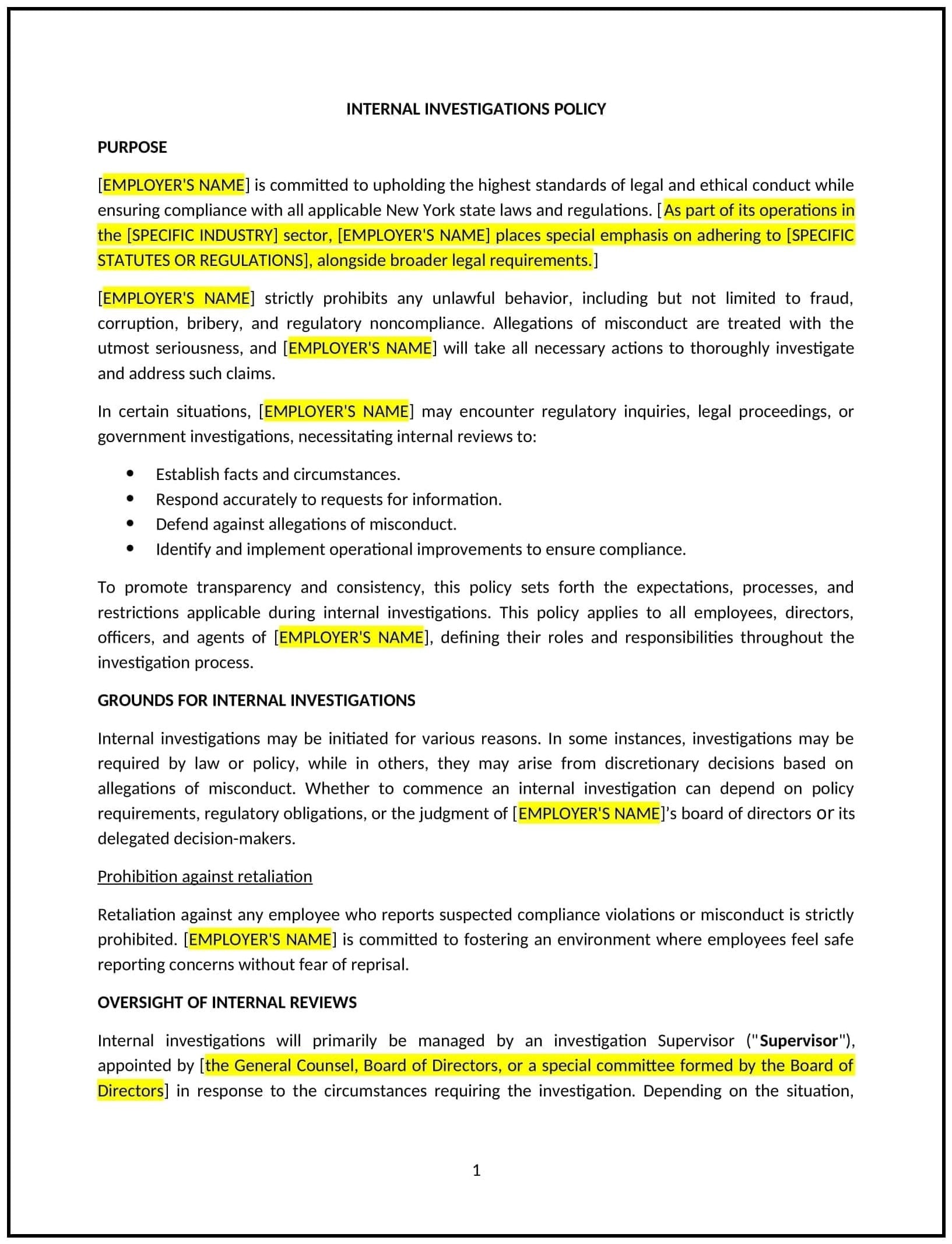Internal investigations policy (New York): Free template
Got contracts to review? While you're here for policies, let Cobrief make contract review effortless—start your free review now.

Customize this template for free
Internal investigations policy (New York)
This internal investigations policy is designed to help New York businesses establish clear guidelines for handling workplace investigations related to misconduct, complaints, or violations of company policies. Whether businesses are addressing employee concerns, regulatory compliance issues, or legal matters, this template provides a framework for conducting thorough and fair investigations.
By adopting this template, businesses can promote accountability, protect employees’ rights, and maintain a respectful and lawful workplace.
How to use this internal investigations policy (New York)
- Define the scope: Clearly outline the situations covered by the policy, such as harassment, discrimination, theft, or policy violations.
- Assign responsibilities: Identify who is authorized to lead investigations, such as HR personnel, legal advisors, or external consultants.
- Outline investigation procedures: Describe the steps involved, including gathering evidence, interviewing witnesses, and documenting findings.
- Emphasize confidentiality: Provide guidelines for maintaining confidentiality throughout the investigation process to protect all parties involved.
- Detail resolution and follow-up: Include steps for resolving issues, implementing corrective actions, and following up with affected employees to address ongoing concerns.
Benefits of using an internal investigations policy (New York)
This policy offers several benefits for New York businesses:
- Promotes fairness: A structured approach ensures that investigations are conducted impartially and consistently.
- Supports compliance: Aligning with state and federal workplace laws reduces the risk of legal liabilities.
- Protects employees’ rights: Clear procedures uphold employees’ rights during investigations, fostering a culture of trust and respect.
- Reduces risks: Addressing issues proactively minimizes potential workplace disruptions, reputational damage, or legal disputes.
- Enhances accountability: A transparent policy reinforces the organization’s commitment to ethical practices and accountability.
Tips for using this internal investigations policy (New York)
- Train investigators: Provide training for HR staff or managers tasked with conducting investigations to ensure they are equipped with the necessary skills and knowledge.
- Communicate the policy: Make the policy accessible to all employees through handbooks or internal platforms, emphasizing the importance of reporting concerns.
- Document everything: Maintain detailed records of all investigation steps, including interviews, evidence, and conclusions, to support decision-making and compliance.
- Seek external support when needed: Engage legal counsel or external investigators for complex or high-risk cases to maintain objectivity and expertise.
- Review regularly: Update the policy to reflect changes in New York labor laws, workplace practices, or industry standards.